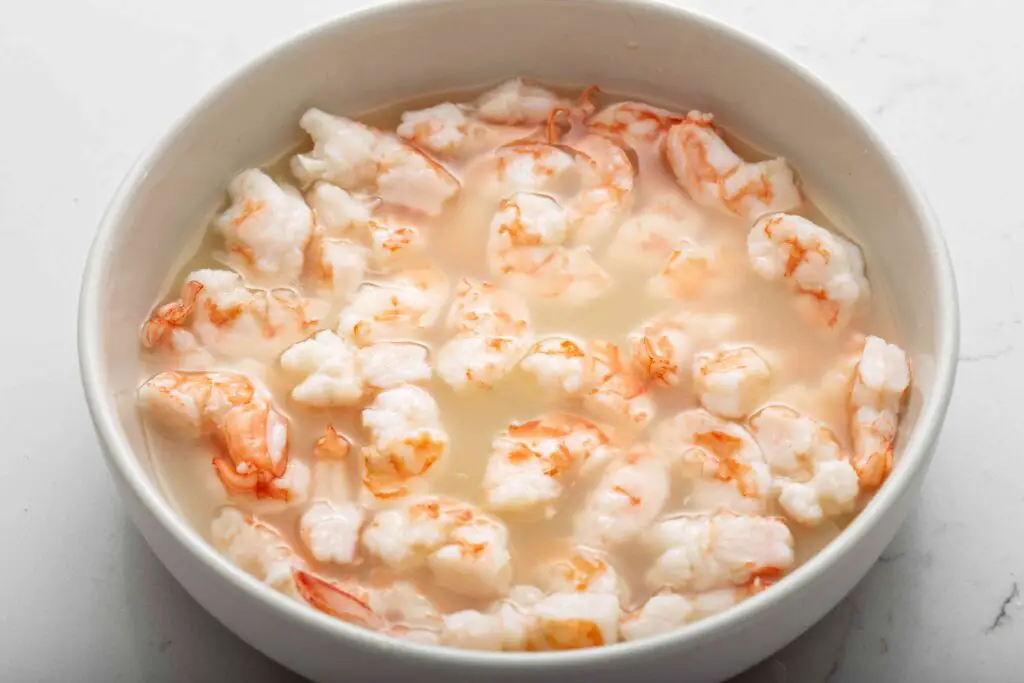Hey there, fellow food enthusiasts! I’ve been experimenting with shrimp recipes lately, and I keep getting asked this fascinating question about lemon juice and shrimp. Let me break down the science and share what I’ve learned about this zesty cooking hack.
Quick Answer
Lemon juice doesn’t actually “cook” shrimp in the traditional sense Instead, it causes a chemical reaction called denaturation that changes the shrimp’s texture and appearance. While this makes the shrimp look cooked, it’s not the same as heat cooking when it comes to food safety.
The Science Behind Lemon Juice and Shrimp
How Does It Work?
When we put shrimp in lemon juice here’s what happens
- Citric acid in the lemon juice starts breaking down the proteins
- The proteins begin to unwind and change structure (denaturation)
- Shrimp turns opaque and gets firmer
- The texture becomes similar to heat-cooked shrimp
It’s Not Really “Cooking”
Here’s the thing – while the acid in lemon juice changes the shrimp’s appearance and texture it’s not the same as traditional cooking because
- No heat is involved
- Bacteria might still survive
- The texture, while firm, is different from heat-cooked shrimp
Food Safety Considerations
Look, I don’t wanna scare anyone, but we gotta talk safety. Here’s what you should know:
Safety Tips:
- Use fresh, high-quality shrimp
- Consider pre-cooking the shrimp briefly
- Don’t rely on acid alone to make it safe
- Keep marinating time between 15-30 minutes
The Perfect Ceviche Method
Wanna make awesome ceviche? Here’s my tried-and-true hybrid method:
- Quick-poach shrimp (2-3 minutes)
- Soak in citrus juice (30 minutes)
- Add your favorite veggies
- Chill and serve
Pro Recipe Tips:
- Always use fresh lemon juice (forget that bottled stuff!)
- Don’t over-marinate – it’ll make your shrimp tough
- Use glass or ceramic bowls (metal can react with acid)
- Pat shrimp dry before any additional cooking
Common Mistakes to Avoid
Trust me, I’ve made these mistakes so you don’t have to:
- Using bottled lemon juice instead of fresh
- Marinating too long (more than 30 minutes)
- Skipping the pre-cooking step
- Using metal bowls with acidic marinades
Global Traditions
This technique ain’t new – it’s been used worldwide forever:
- Latin American ceviche (2000+ years old!)
- Mediterranean seafood dishes
- Southeast Asian lime-based recipes
- Japanese citrus-cured sashimi
The Bottom Line
While lemon juice can make your shrimp look and feel cooked through that cool protein denaturation process, it’s not a complete substitute for heat cooking. For the safest and tastiest results, I always recommend a quick heat-cook before marinating in that zesty lemon goodness.
Looking to experiment? Start with small batches and remember – when in doubt, give it a quick heat treatment first. Your taste buds (and tummy) will thank you!
What’s your experience with lemon juice and shrimp? Drop a comment below – I’d love to hear your cooking adventures!
Would you like me to explain any part in more detail? I’m happy to dive deeper into the science or share more specific recipes!

Is it possible to ‘cook’ without heat? And can scientists and chefs agree on the best way to make ceviche?

Fijian ceviche (kokoda) Source: Sharyn Cairns


No wait, freshness first

Does Lime Juice Cook Shrimp? – Beverage Buff
FAQ
Will lemon juice cook shrimp?
While lemon juice doesn’t actually “cook” shrimp in the way that heat does, it does cause protein denaturation, which is a similar process that gives the shrimp a cooked appearance and texture.
Why do you put lemon juice in shrimp?
- Flavor Enhancement: Lemon adds a bright, tangy flavor that complements the natural sweetness of seafood, such as shrimp, crab, and lobster.
- Acidity: The acidity of lemon juice can help cut through the heaviness of the other ingredients, making the overall dish feel lighter and more refreshing.
Why does lemon cook seafood?
As the pieces of fish sit in the marinade, the citric acid from the juice slowly causes the flesh’s proteins to denature, in very much the same way that …
What does lemon juice do for seafood?
The acidity cuts through the richness of seafood, enhances its natural flavours, and even helps tenderise the texture. But using lemon the right way makes all the difference! Marinating fish in lemon juice before cooking infuses it with bright citrus notes, but timing is key.Mar 21, 2025
